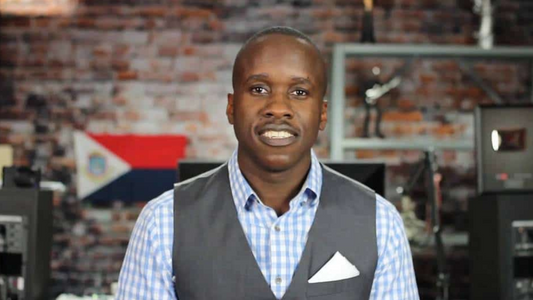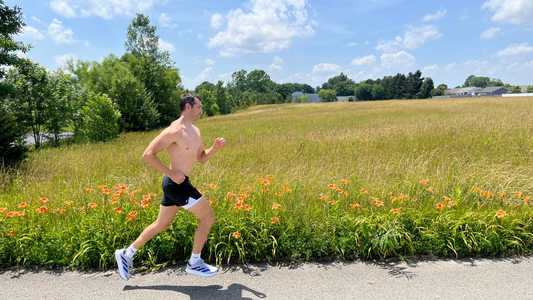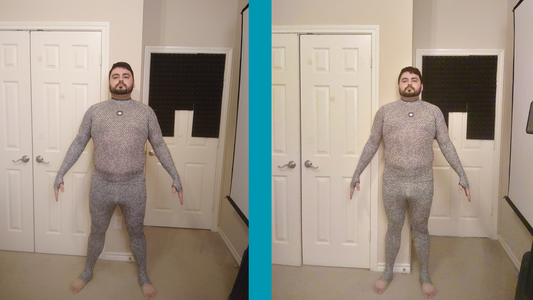![How to Take Charge of Your Sleep: A Conversation with Sleep Is A Skill Founder Mollie Eastman [Part One]](http://zozofit.com/cdn/shop/articles/BlogPost_MollyEastmanInterviewPart1_1920x1080_2.png?v=1695794075&width=1100)
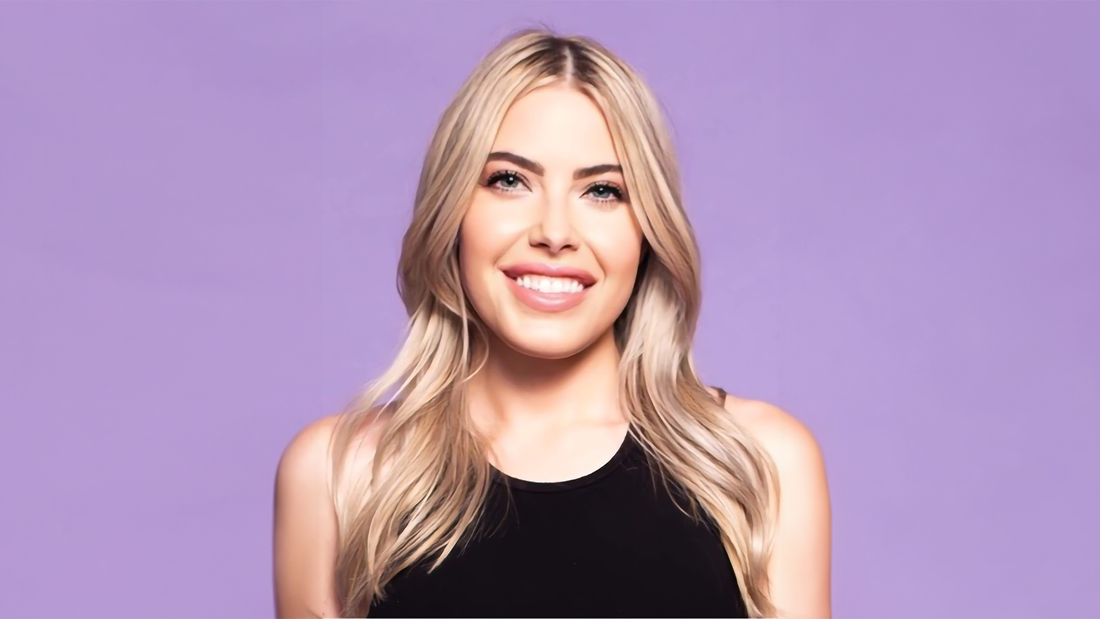
How to Take Charge of Your Sleep: A Conversation with Sleep Is A Skill Founder Mollie Eastman [Part One]
For the last few weeks, ZOZOFIT has been focusing on the importance of sleep and how integral it is to your well-being. Today, we are featuring the first part of our in-depth discussion with one of the leading sleep professionals working today, Mollie Eastman, founder of Sleep Is A Skill and the host of The Sleep Is A Skill Podcast. For Sleep Is A Skill, Eastman has spent the last several years working to cultivate a holistic approach to sleep that blends together technology, accountability, and behavioral change in order to help you take control over this essential aspect of your life so that you can best optimize the time you are spending sleeping every night.
During the first part of our extensive interview, Eastman discussed how she navigated her own harrowing experiences of not being able to sleep and how that led her on a journey towards creating Sleep Is A Skill. Throughout our hour-long chat, Mollie provided a great deal of insight into why sleep is such an important component of our overall health and how we’ve collectively lost focus on ensuring that we’re being proactive about making sure that we’re getting enough sleep to be at our very best each and every day.
Eastman also offered up some helpful ideas on how you can take charge over your sleep and cited several elements that we should all be conscientious of in order to ensure that we’re creating the best possible environment for high-quality rest.
Check out the first part of our interview with Mollie Eastman below and look for part two of our informative interview tomorrow to wrap up ZOZOFIT’s comprehensive article series on the significance of sleep and how it can impact our lives.
So great to speak with you today, Mollie. I read a little bit about your “A-ha!” moment that you had when you were traveling when you were struggling with sleep. I was wondering if you could talk about that more and how it became a catalyst for Sleep Is A Skill. Did you initially realize that this moment of frustration would become your professional directive, or did that come about over time?
So the long and the short of it is that I now think of my life in a three-part series. Basically, before I went through what I think of as a sleep breakdown, and just breakdown in my whole life, a number of things happened where I arrived at this rock bottom moment that were really wrapped up in my sleep and then I think of it thereafter. Before I had that sleep breakdown, I thought of my sleep as just a fixed kind of domain. So meaning that I had a lot of fixed labels and narratives with it. I would say I'm a short sleeper, I'm a night owl, it's in my genes, or I'll sleep when I'm dead.
All these things were just me thinking, “Oh, that’s how it is for me,” and I just have to survive my lot in life. I wasn't connecting all these other kinds of deleterious effects of poor sleep. So as I was getting more and more anxious as the years went by, I had the beginnings of an ulcer, shingles in my twenties, and just a lot of lack of workability in health and well-being. I wasn’t spotting those throughlines with the poor management of sleep and later realizing circadian health. So it wasn't until I went through that breakdown and realized that, as a serial entrepreneur in Manhattan, burning the candle at both ends, stress to the gills, that’s when I had that “A-ha!” moment of realization that in order to fix this, I was going to need to really take this on full charge, full steam ahead.
Part of the fear and the fire came from the fact that I have a family with a lot of mental health issues and reliance on pharmaceuticals. So there was a fear for me that this was the moment where I was going to go down this path and see some of those really sad outcomes that I'd seen for some people in my family. That really lit that fire to have my life not go that way. So, I went down the rabbit hole and spent a lot of money, time, energy, and effort. A lot of things that worked, a lot of things that didn't work, but through the process, by so fundamentally changing how I was managing my life to support sleep, everything about my life transformed.
I also got to realize that all those old narratives and labels were not accurate and that actually this kind of ethos of sleep truly being a skill was one in which it had real legs to it. We’re not necessarily just good or bad sleepers, that there's a trainability that has been forgotten, or maybe not looked into or not respected in some way. I think that sleep is beginning to have a bit more of a sleep renaissance and respect and time devoted to it in recent years. But, for me, because I fundamentally shifted how I thought about sleep, it felt like a victory and to be able to actually have confidence back in the area that I just truly couldn't stop talking about it.
So it just ended up happening really organically, where it became this thing that I started supporting different people that were also dealing with sleep issues. And so, as I was starting to have more workability and making these discoveries, particularly in the realm of chronobiology and circadian rhythm entrainment, I started sharing what I was learning. Then, it started growing and amassing into these small groups, which resulted in me starting Sleep Is A Skill.
That has also ended up taking on its own different journey, if you will, where then now we have a weekly newsletter. We've been doing that every Monday for five years. We also just received word that we're now the number one sleep podcast. So getting that message out to the masses in those ways and through online courses, has been so great. But the genesis of all of this came about at the lowest point in my life, so by having a breakthrough in that area, it just so fundamentally shifted what was possible and shook up how I was thinking about what was possible for myself that wanted to share all of that with the masses.
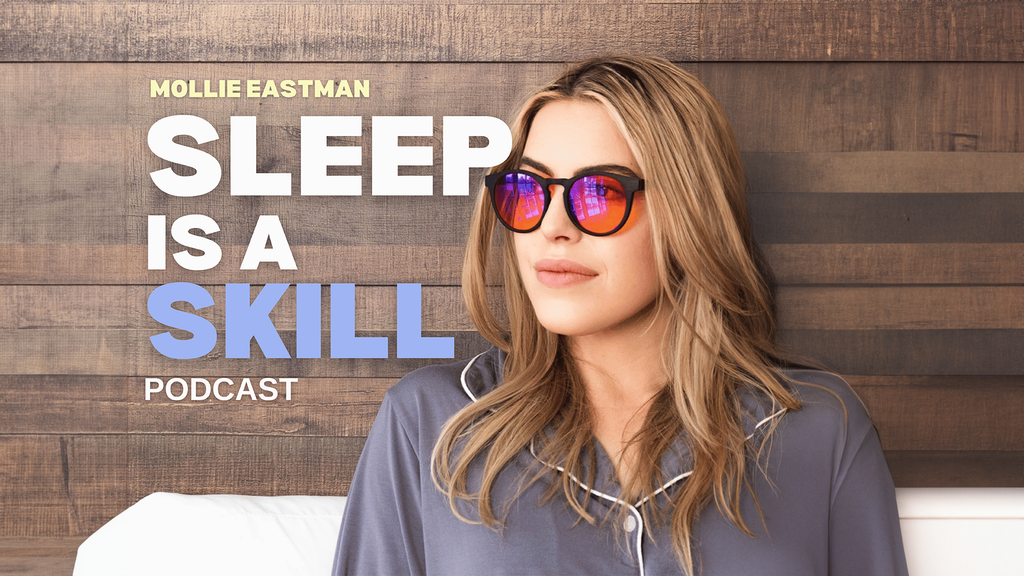
In addition to her professional appearances, partnerships, and weekly newsletter, Mollie Eastman also hosts the high successful The Sleep Is A Skill podcast.
That is so cool, and especially because I know how competitive the world of podcasts can be. But hearing about everything you’ve achieved so far is incredible and very inspiring.
Oh, well, thank you. Sometimes, it can be challenging to see the silver lining when you’re at rock bottom, so being able to have gotten through that and made it to the other side has been so great. and now be able to share and relate to so many other people that are in those moments for themselves. Or maybe not even that dramatic, but maybe just would rather their sleep be a little bit better, it's just maybe not as kind of dialed in as they might like than from wherever they are on the spectrum to be able to help support people in that time in their life, I feel very grateful.
So essentially, Sleep Is A Skill is a framework for helping to support people to get more power around this area that is called circadian rhythm entrainment, which is part of chronobiology. Chronobiology is the science of time and how time affects our biology. The takeaway is that we're all functioning as human beings on this 24-hour circadian rhythm, and as a result of that design, part of our hardwired biology is that we are diurnal creatures, meaning that we're meant to be active by day and we are at rest at night.
There was a study that was done by the EPA in 2001 that found that the average American was spending around 93 percent of their time indoors, and the problem with that is the time that we are indoors, the more divorced we are from that 24-hour diurnal pattern of day/night. For thousands of years, we were hunter-gatherers who were outside largely so we couldn't get away from that rhythm. Now, we're almost like these indoor zoo animals, where we have the ability to have 24-hour lighting, 24-hour thermostat controls, we can eat for 24 hours, and we can be sedentary.
All of these things, plus chronopharmacology, which is the timing of our drugs, like alcohol, THC, caffeine, pharmaceuticals, et cetera, means that the problem often lies in us moving indoors and divorcing ourselves from these clear rhythms in nature. We're only just beginning to discover how negatively this is impacting both our sleep, our wake, and our experience of our well-being.
One thing that I've been pointing to this year is this paper that was released that had almost 250 circadian scientists calling for warning labels on using light bulbs at night. For these people, their entire life's work is around circadian health and they're putting their entire reputation on the line to say, "This is so negatively impacting us. And not just for sleep, but it also can link to cancer, diabetes, mental health, and of course, the sleep wake cycle, and our overall well-being." They're pointing to almost 2,700 studies to support how they are stealing our well-being in a particular way.
I had no idea. I knew our environments influenced how we slept but didn’t realize just how much of an impact all of it made on us every single day.
Definitely. This is all about our clocks. We have trillions of clocks that are connected to every cell and organ in our body, and they're looking to stay on time. And with our bodies, our eyes are sampling the environment all around us all the time. We're giving ourselves clues based on the things that we're doing that also shakes out to things like the timing of our food or whenever we choose to put anything but water in our bodies. All of those decisions can inform those clocks. For so long, we've gotten away from those natural rhythms and are giving our bodies confusing clock signals.
So by having what's known as consistent sunlight anchoring where you have morning anchoring of a consistent wake up time, and then keeping consistent light exposure throughout the day, that can begin to create a consistent cortisol pulse on the first half of the day, which you want. You want your cortisol pulse to be at its highest when you first are waking up. Then, you want to support the uptick in your body temperature throughout the course of the day, which is when you're riding that cortisol wave, which is like natural coffee, and that’s how you are able to get things done.
Into the evening, your temperature is dropping markedly, and you want to make sure that your melatonin pulse is rising at around the same time each night consistently because the very unsexy thing about sleep is that sleep loves consistency. So, the more consistent we can be with bringing darkness into our evenings to help support the uptick in our high melatonin pulse, that can help support that with more automaticity. We're falling asleep with ease and staying asleep and without all the wake-ups and early morning awakenings and all that.
When you combine all of those things, the big goal is to be consistent. We should have such well-trained clocks that our bodies are constantly pulling for the routine that you are establishing, because there are a lot of really important benefits that are supported when that happens, especially in the world of fitness and nutrition. Sleep is when your reparative functions occur throughout the course of the night, so you want to make sure that you are getting quality sleep that can support your glucose and insulin regulations and satiate your hunger hormones.
Yeah, it feels like it can be hard to retrain yourself, but it’s something that I had to do myself prior to ZOZOFIT, as I used to keep extremely odd hours, and I just thought that was how my body worked. But now I see that with some work, you can really retrain yourself when it comes to getting the sleep that you need.
Well, that's so good. I think I might've left this part out, but a lot of the people I work with are high stakes poker players in particular, so they are going to bed very late or keeping irregular schedules based on tournaments. Or if they're cash game players, they might be in a really hot game that they're needing to keep running and go really, really late. Or if they're online players, they might be dealing with all kinds of variability there. So all forms of poker can often bring about lots of irregularity, which sleep finds very challenging, especially when it comes to the quality sleep that we should be looking to get.
But this kind of training takes some time and can be like creating this whole other identity in some ways. Entrainment is so important because it's akin to anyone who's ever jumped a bunch of time zones all at once where you can feel all kinds of funky when you experience that. But through entrainment, you are able to adjust to that future time zone in a relatively short period of time. That's what we're trying to make sure we're doing in our daily lives because so many of us are dealing with something called social jet lag, which is where we're managing our bedtime, wake times differently on non-work days than we are on those work days or however you want to shake out what your responsibilities are. That becomes a problem because people are experiencing the effects of jet lag, but they might not even realize that that's the case.
So, if we think of sleep being a skill, there's a lot for us to unpack given that sleep is something we do during one-third of our lives. The average person sleeps for an average of 26 years, and yet, it is a topic that is so rarely discussed. Right now feels like a call to arms for all of us to take some initiative and interest in this thing that we do so often, and then work on training our skill set when it comes to sleep. And to help make sure that we stay on track, we need to make sure that we’re also aligned with individuals that can further support that well-being, whether it is sleep doctors, sleep researchers, neurologists, practitioners, et cetera.

![zf-w-[168px] zf-h-[40px]](http://zozofit.com/cdn/shop/t/15/assets/logo-desktop.png?v=117713855448369080381753069598)
